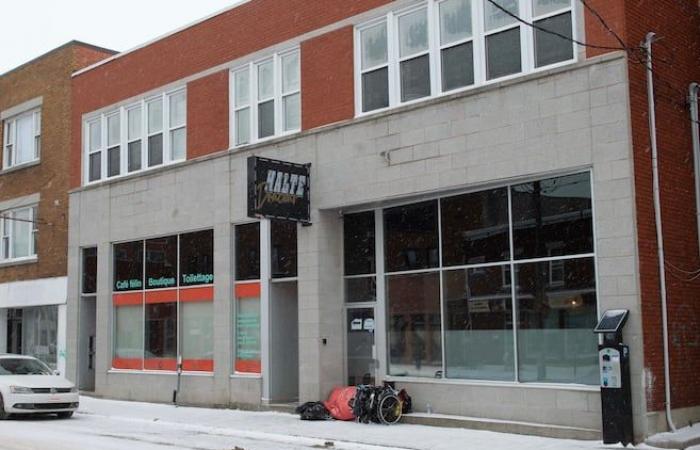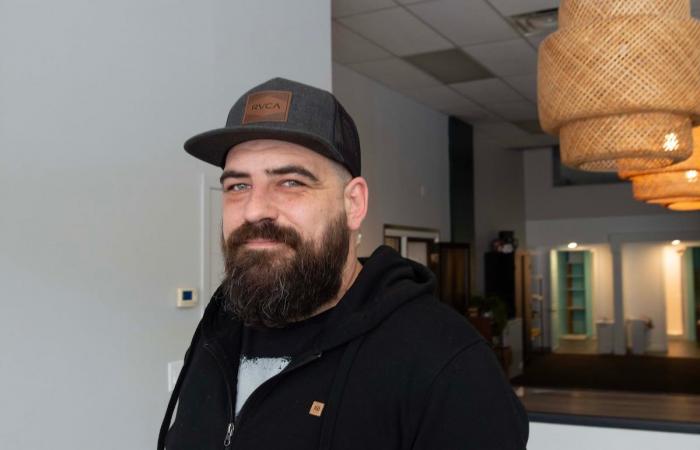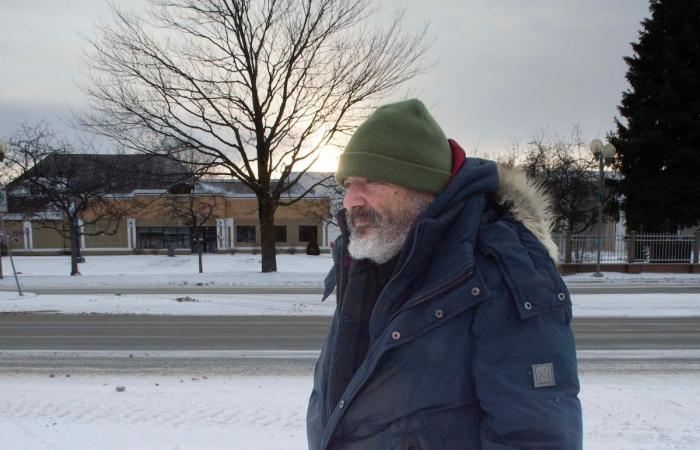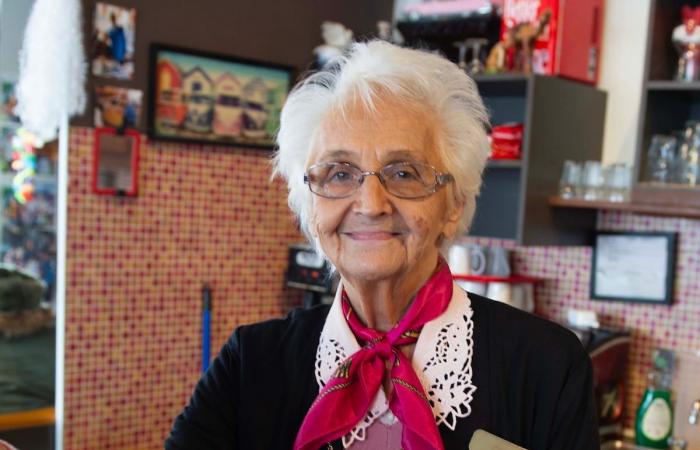Over the past year, in Trois-Rivières, cohabitation with them has been the subject of many discussions and even a forum organized by the municipal administration. The presence of a rest stop on Rue Royale in the city center has also caused a lot of discussion.
Today, after the adjustments made by the Point de Rue organization, which manages the resource, what is the situation? Has the opening of a heat stop in Cap-de-la-Madeleine, under the responsibility of the Le Havre Center, changed the situation?
An expanding phenomenon
Jean-Félix St-Germain has been working at Point de Rue for almost 20 years. As director of accommodation, he is responsible for coordinating the activities of the Royale Street drop-in center. It must be said that times have changed a lot since his arrival within the organization.
Jean-Félix St-Germain, director of accommodation at Point de Rue. (Sylvain Mayer/Le Nouvelliste)
Pandemic, marked increase in home values, housing crisis, the last few years have shaped the new social reality. “There, we no longer just have marginalized people who are homeless. We are thrown together with people who have not chosen this, who are not equipped to live like this and who end up on the street from one day to the next,” he illustrates.
“We do not have the possibility of relocating them even if they have always paid rent,” he adds. Mr. St-Germain says he was aware of the loss of some 200 rooms in the downtown area in a single summer during the pandemic, contributing to the increase in homelessness.
“At the moment, we have around 50 people using our resources. There are still around ten others in the street, which makes around sixty people completely on the street. At the time, about ten years ago, when I had five in the winter, it was beautiful,” he says.
“The more you settle into the pattern of the street, into these lifestyle habits, the more difficult it is to escape. At some point, when you try to rent an apartment and it’s been a week since you’ve washed, the landlord has less taste.”
Depending on the outside temperature, the drop-in welcomes approximately 20 to 40 people each day. In hot weather, some people still prefer to sit outside rather than inside the resort, or spend less of the night there.
“Their first choice in life is not to come here. Freedom is the only thing you have when you’re on the street. The freedom to be where you want when you want, to not have obligations.”
— Jean-Félix St-Germain, director of accommodation at Point de Rue
Faced with complaints from certain citizens regarding the presence of the drop-in center in the city center, he and his team made several changes. Thus, the resource is now limited to people experiencing homelessness. We are now asking night owls in search of sociability to take their turn.
During his approximately 20 years of experience in intervention, Jean-Félix St-Germain has seen the number of people experiencing homelessness increase significantly. (Sylvain Mayer/Le Nouvelliste)
“It’s day and night, compared to last year,” says the speaker. “People experiencing homelessness, during the day, they got burned. They spent all their calories, all their energy. Once they have eaten and are warm, they need to sleep.”
“By eliminating all that and really just having the same people living here, it becomes a little bit like home. It’s also easier for us to explain the importance of the feeling of belonging, of taking care of the place, of taking care of the neighbors.”
The harsh reality of the street
It’s just 8 a.m. and the cold is particularly bitter this Saturday morning in Trois-Rivières. Stéphane Massicotte leaves the heat station administered by the Le Havre Center, rue Fusey in Cap-de-la-Madeleine, and quietly waits for the bus which will take him to the city center.
After being expelled from several financial establishments in Trois-Rivières, buildings that he used most of the time to settle in at night, the man finally resigned himself to spending his nights at the community resource. “It’s going well, the speakers are really friendly,” he describes.
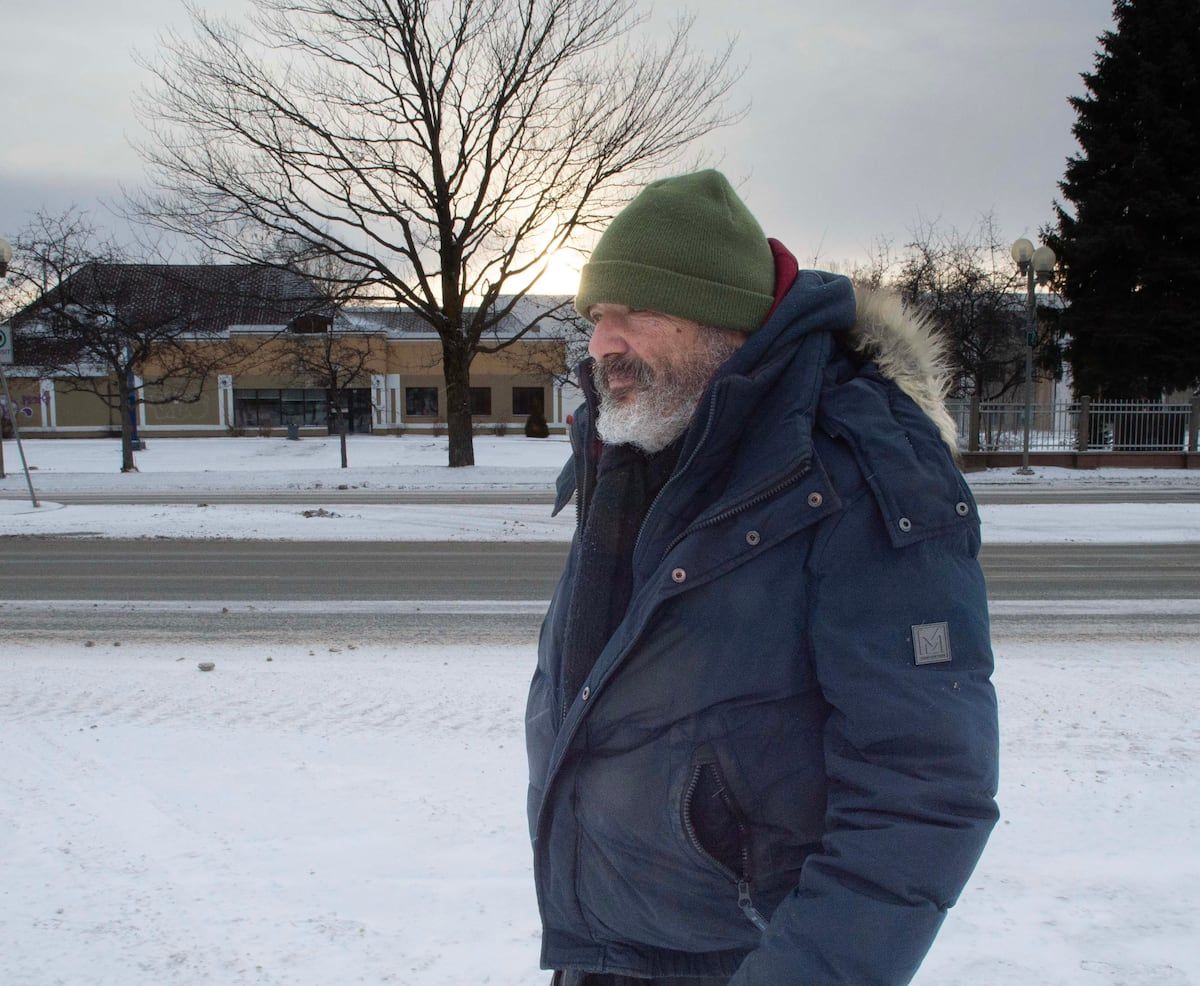
Stéphane Massicotte as he leaves the Cap-de-la-Madeleine stopover. (Sylvain Mayer/Le Nouvelliste)
For a year and eight months, Mr. Massicotte has been homeless. He sings to raise some money. “At first, I didn’t want to go because I was afraid of running into a gang of dirtbags on the crack“, he admits. “Finally, I came here and straight away it was good.”
Shoplifting, mental health problems, drug use, he makes no secret of it, the reality of the street is anything but a long, quiet river. “Stealing doesn’t make sense, but when you need to and you’re able to do it, you do it,” he says.
“Mentally, I broke four times. I ended up at the hospital, I was bawling, I was tired. Tired of the gaze of others, of the judgment.”
During the day, when most shelters are closed, this one likes to spend time at Tim Hortons. “They know me, I like them, they like me and I spend there,” he continues.
“There is a difference between poverty and necessity. I am needy, I am not poor, because I have tools.”
— Stéphane Massicotte, Trifluvian experiencing homelessness
Is there anything that could be done to be able to get people off the streets? How can we stop this problem? “Phew! There will always be poverty, it’s a business,” he replies. “It’s going to get worse. There are no accommodations.”
Understanding traders
If complaints from residents of the downtown rest area have sometimes made the headlines, it seems that the situation this year has improved significantly. Jean-Félix St-Germain reports having received donations of money, food and clothing from more than 200 people since the start of the season, proof that good understanding reigns according to him.
The floor manager of the Jean Coutu pharmacy located opposite the resource was not even aware of its existence. The business is always closed during the stop’s opening hours, but it can sometimes happen that people from the street come to try to warm up there.
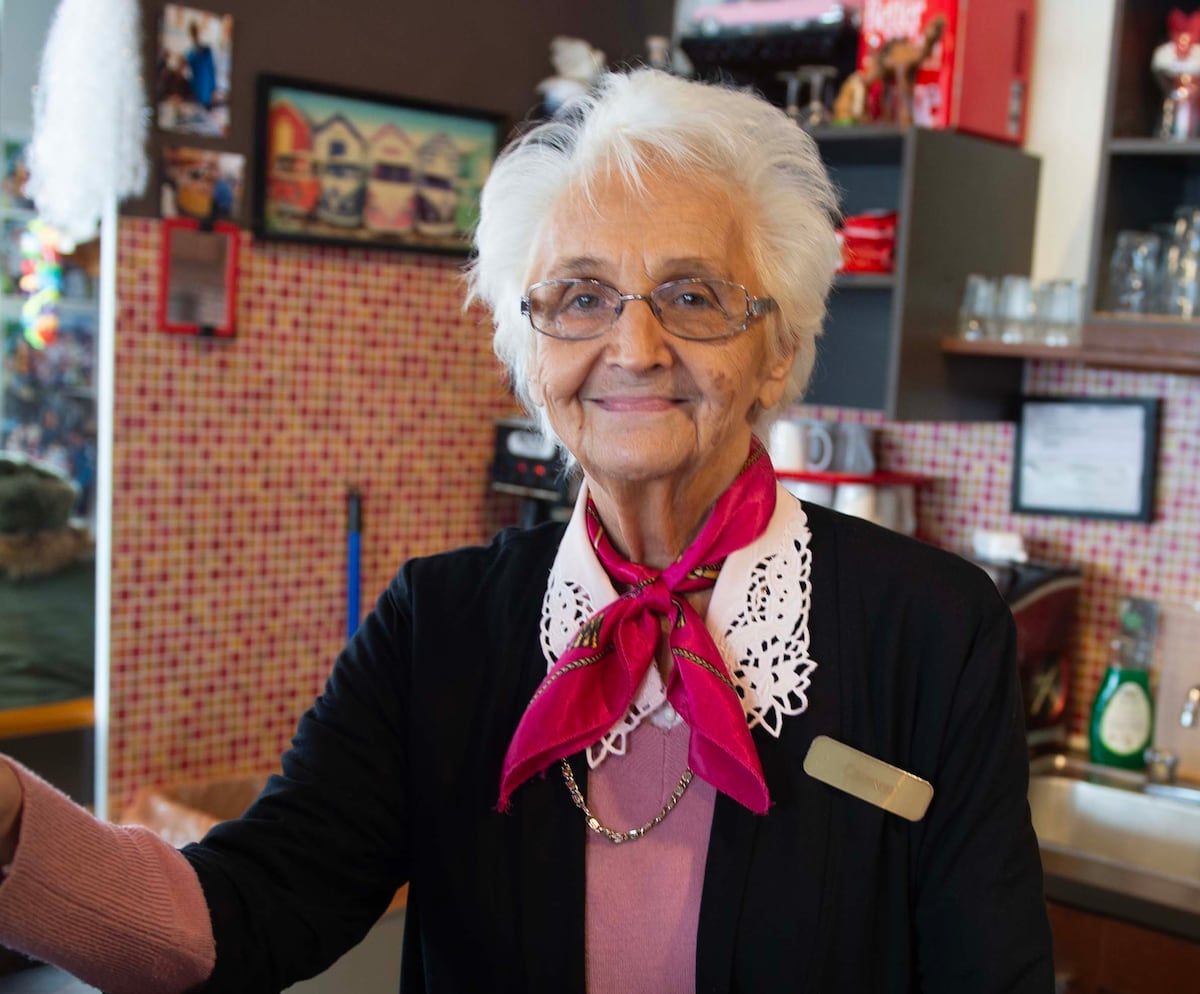
Carmen Desjardins, owner of the restaurant Au Vieux Café, next to the Cap-de-la-Madeleine rest stop. (Sylvain Mayer/Le Nouvelliste)
Owner of the restaurant Au Vieux Café, camped very close to the Cap-de-la-Madeleine stopover, Carmen Desjardins also reveals that she has no problem with the itinerant population in the area. It must be said that the rare times she experienced negative situations, she quickly made the problematic elements understand what she was using.
“People gave each other the word, ‘pay attention to Carmen,’” she emphasizes. “I’ll handle it, there’s no problem. I don’t want to harm anyone. Even before it opened, I gave them coffee here and I took care of it,” continues the nearly 80-year-old shopkeeper.
“At least they’re in the heat. It’s not hot outside. It doesn’t make any sense.”
— Carmen Desjardins, owner of the restaurant Au Vieux Café
“I don’t think there are any problems,” adds the woman who also received a visit from a representative of the Le Havre Center before the opening of the resource in order to take the pulse of the traders in the sector, a gesture which she appreciated.
“I think it’s a good thing to do for them. They are outside, it doesn’t make sense,” she laments.

